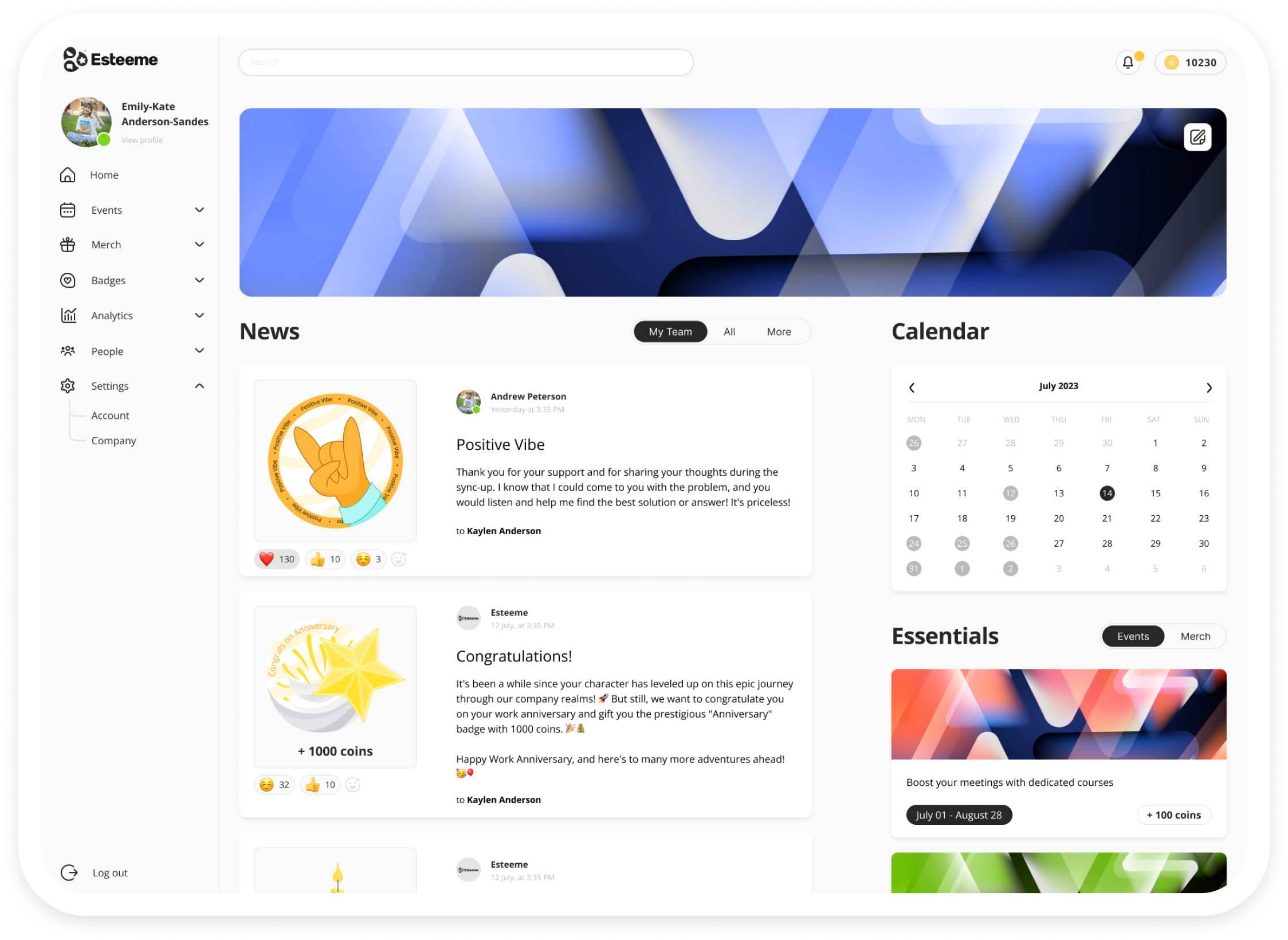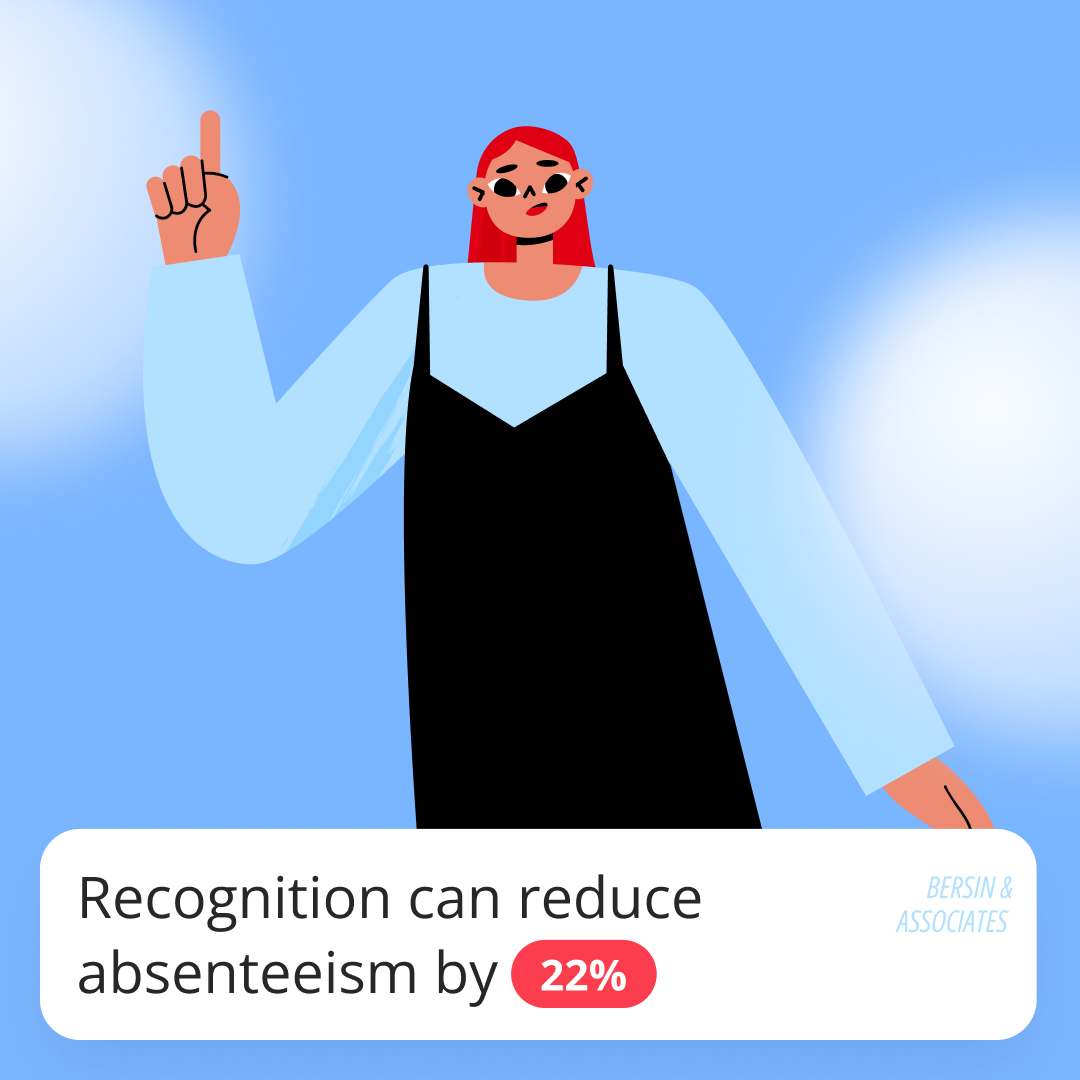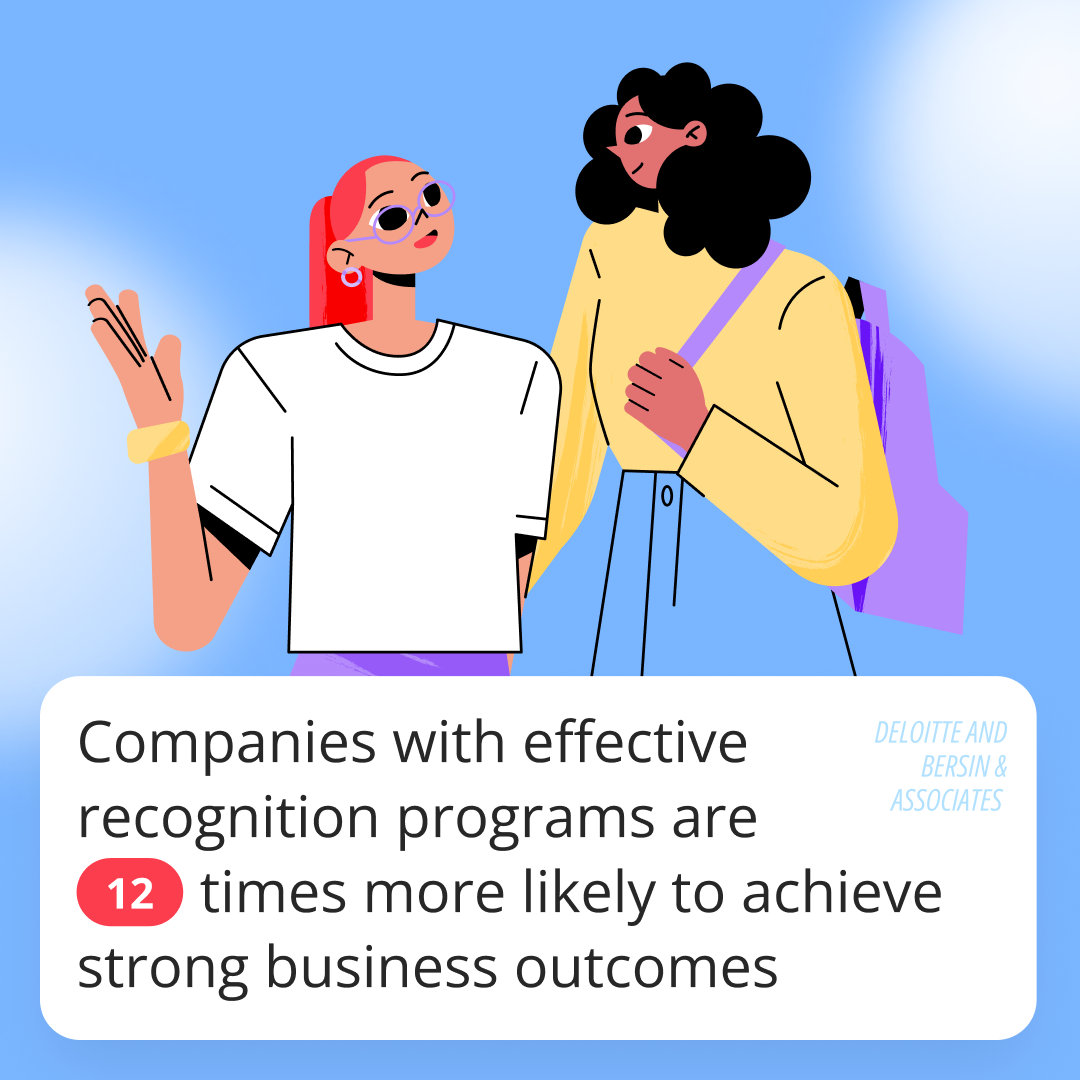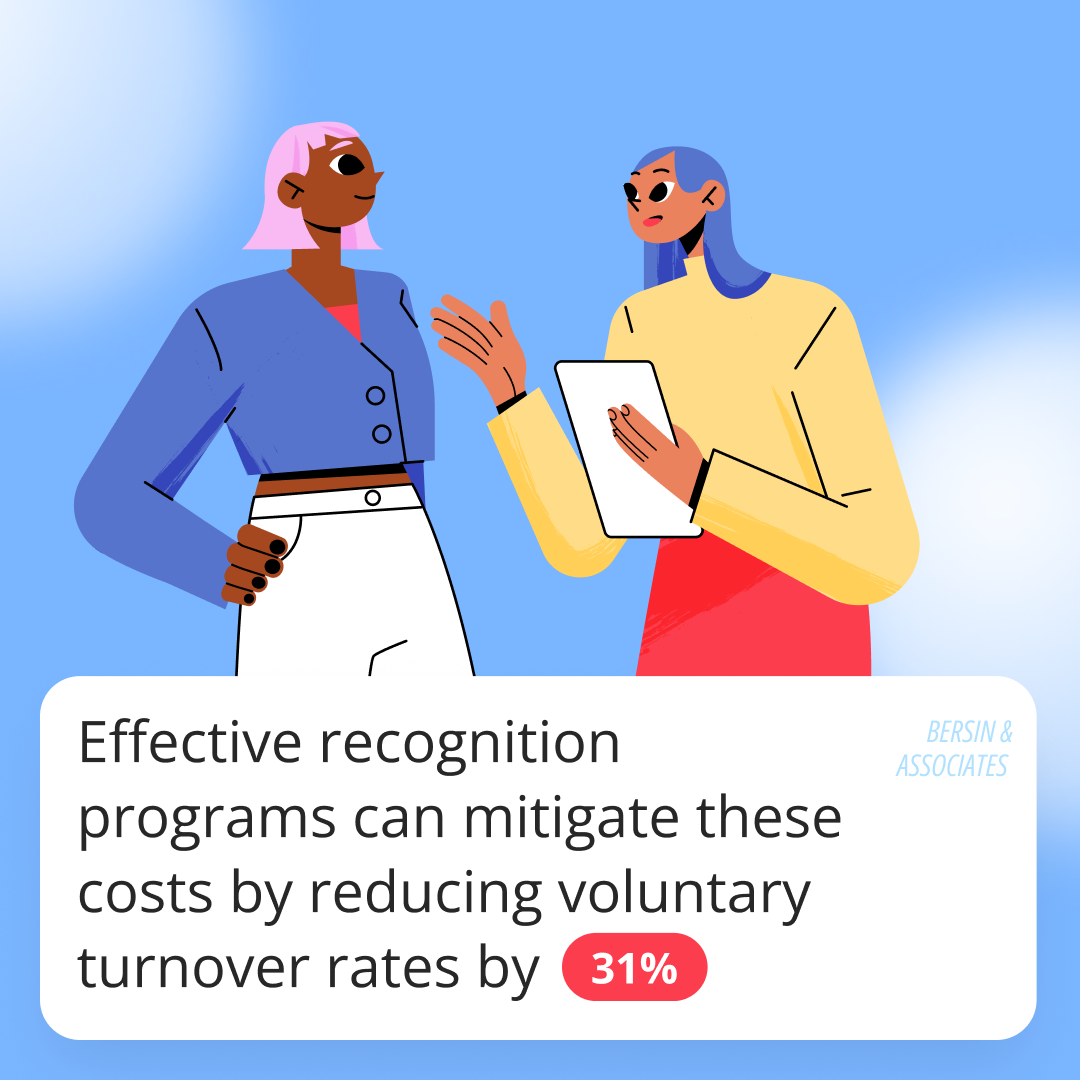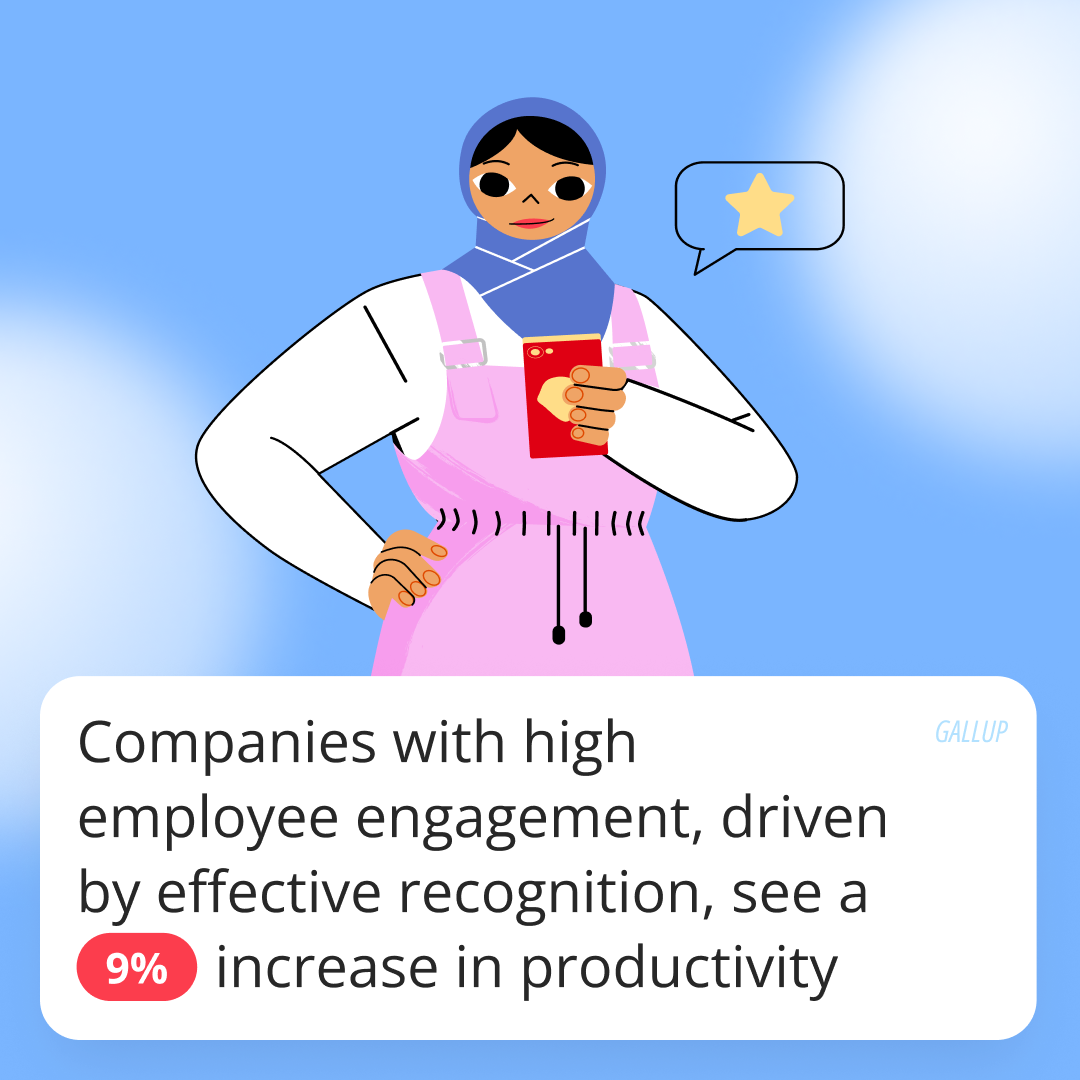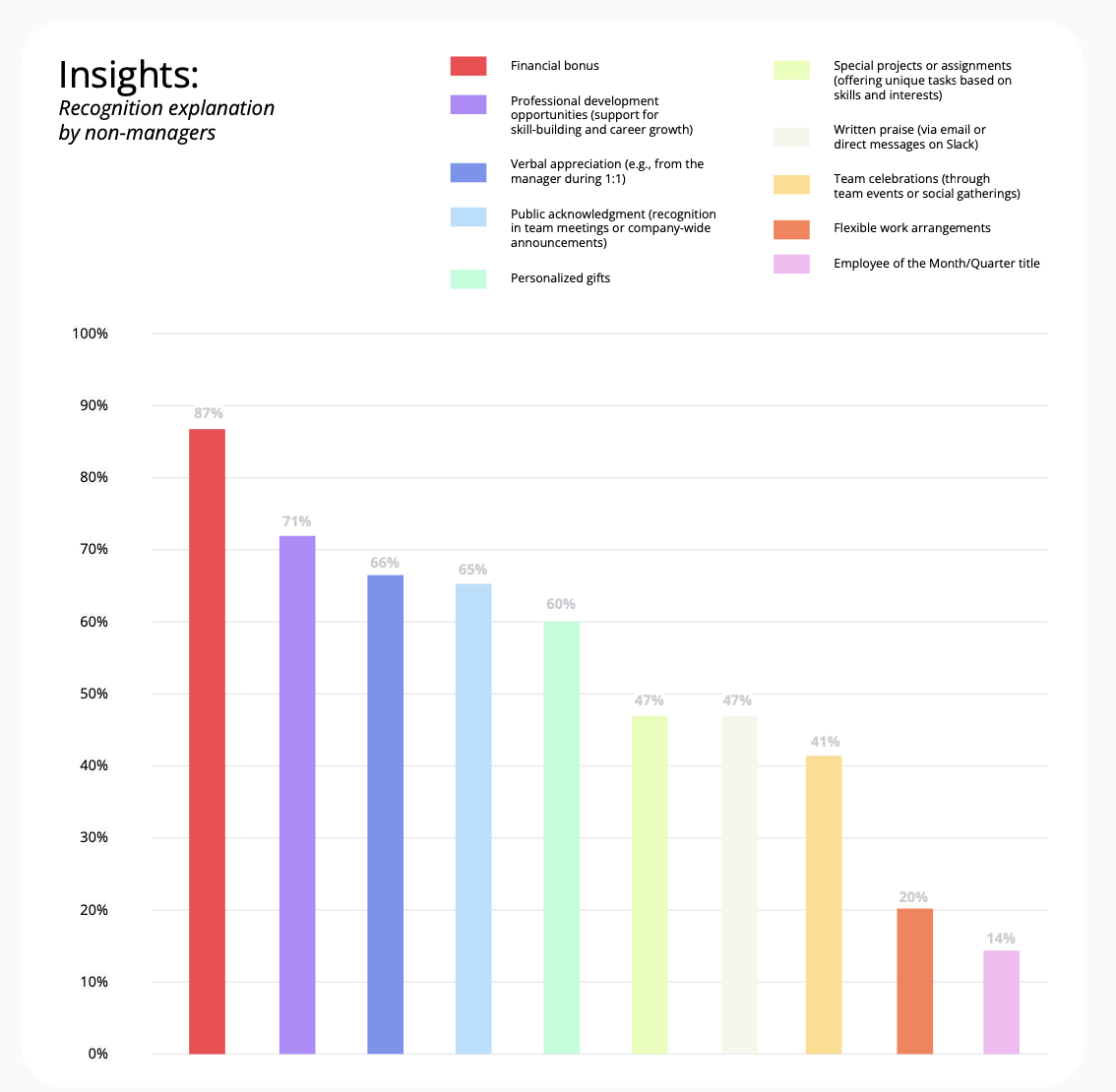Employee Recognition Meaning: Comprehensive Guide
The act of a simple "thank you." Recognition. Or Appreciation. Call it what you will, but it remains one of the most underestimated tools in building meaningful connections. When was the last time you genuinely thanked someone—or had someone thank you? Chances are, you remember the latter vividly. Why? Because appreciation leaves a lasting emotional impact, boosting your mood and creating a strong, memorable connection.
Now, let's bring this concept into the workplace. How does an appreciation culture shape our work environment? Whether you're an HR professional, manager, or simply curious about fostering positive relationships, this article has something for you. We’ll explore the meaning of employee appreciation, how a culture of recognition benefits businesses, the nuances of appreciation for managers versus non-managers, and actionable tips to elevate your employee engagement strategy.
What Is Employee Recognition at Workplace?
It all starts with culture. When a new employee joins a company, their first few weeks often reveal the type of workplace culture they’re stepping into. Does the manager express gratitude and appreciation, or do they communicate with a sense of hierarchy and distance? Is there a nurturing mentor-mentee dynamic, or is it a relentless push to burn the midnight oil? These cues become evident quickly, setting the tone for how employees perceive their value within the organisation.
Workplace culture often mirrors the behaviours and attitudes of its leaders—founders, managers, and team leaders who set the example. If these individuals prioritise recognition and appreciation, this behaviour cascades through the organisation, creating a positive “recognition ripple effect.” When leaders make a habit of saying thank you, acknowledging contributions, and celebrating successes, they create an environment where recognition isn’t just a one-off gesture but a core element of everyday culture.
Employee recognition, at its heart, involves acknowledging the employee contributions, efforts, and achievements of individuals in meaningful ways. It signals that their work matters, that their contributions make a difference, and that they are valued members of the team. Recognition is more than a feel-good moment—it is a critical component in building trust, motivation, and loyalty within the workforce.
Fostering a culture of recognition leads to numerous benefits. Employees feel more engaged, valued, and motivated to give their best. It promotes a sense of belonging and can significantly reduce turnover rates. In fact, companies that prioritise recognition report lower voluntary turnover, increased productivity, and stronger business outcomes.
So, whether you’re a leader or an aspiring change-maker within your team, building a culture of appreciation starts with everyday acts of acknowledgment. It’s about making recognition a natural part of your workplace DNA—ensuring everyone knows their contributions matter.
Why Businesses Should Care About Employee Recognition
In the quest for productivity and growth, many businesses focus on strategies like optimising processes, enhancing customer satisfaction, and driving revenue. While these are undoubtedly important, one of the most impactful tools for achieving these outcomes is often overlooked: employee recognition. At its core, recognition is about making employees feel valued and appreciated for their contributions. When done right, it goes beyond a simple “thank you” and becomes a powerful driver of engagement, loyalty, and performance.
1. Increased Employee Retention High turnover rates can be a major drain on any business, both financially and operationally. Replacing an employee can cost anywhere from 16% to 213% of their annual salary, depending on their role, and it can take months for a new hire to reach full productivity. Companies with strong recognition programs report a 31% reduction in voluntary turnover, as employees are more likely to stay in environments where they feel appreciated and valued.
2. Enhanced Employee Engagement Engaged employees are not only more productive, but they also bring enthusiasm, creativity, and commitment to their work. Recognition plays a key role in fostering this engagement. When employees know their efforts are acknowledged and celebrated, they are motivated to go above and beyond. In fact, organisations with effective recognition programs are 12 times more likely to see strong business outcomes compared to those without.
3. Boosted Productivity and Performance Recognition directly impacts how employees perform. Studies show that businesses with engaged employees experience a 9% increase in productivity. By making employees feel seen and appreciated, recognition reinforces positive
How Managers and Non-Managers Perceive Recognition: Insights from Esteeme’s Internal Research
Employee recognition is not a one-size-fits-all approach. Different individuals value recognition in diverse ways based on their roles, career stages, and personal preferences. To gain a deeper understanding of these nuances, Esteeme conducted extensive research in collaboration with one of its clients, Room 8 Group, a game development company. This research highlighted significant insights into how recognition is perceived by managers compared to non-managers, revealing key differences that can shape the effectiveness of recognition strategies within organisations.
Non-Managers' Preferences for Recognition
For non-managers, recognition often focuses on tangible rewards and public acknowledgment. Esteeme’s research identified several key areas that resonate strongly with associates (non-managers):
Financial Bonuses and Incentives Non-managers placed high value on financial recognition, such as bonuses and incentives tied to performance. This type of recognition helps address basic physiological and safety needs, aligning with the foundational levels of Maslow’s Hierarchy of Needs.
Professional Development Opportunities Many non-managers are motivated by opportunities that support their skill-building and career growth. Offering access to specialised training, skill-based projects, or career advancement programs can make them feel valued and invested in by their employer.
Verbal Appreciation Simple words of gratitude, especially from managers, hold significant importance for non-managers. Personalised verbal recognition, whether delivered in one-on-one settings or team meetings, can boost morale and reaffirm their value within the team.
Public Acknowledgment Recognition during team meetings or company-wide events can have a profound impact on non-managers. Publicly celebrating achievements not only validates their contributions but also fosters a sense of pride and belonging.
Personalised Gifts Tailored tokens of appreciation, such as personalised gifts, are another way to make recognition meaningful. This approach goes beyond generic rewards, demonstrating that their efforts are noticed and valued.
Special Projects or Assignments Non-managers often value being trusted with unique tasks or challenging projects that reflect their skills and interests. This form of recognition serves as a nod to their capabilities and potential for growth.
Flexible Work Arrangements and Team Celebrations Providing flexible schedules or celebrating team milestones through social gatherings also ranks highly as a way to show appreciation, reinforcing work-life balance and team cohesion.
Managers' Preferences for Recognition
In contrast, managers tend to value recognition that aligns more with their leadership roles, personal development, and organisational influence. The research revealed key preferences among managers:
Verbal and Written Appreciation Managers appreciate both verbal praise and written recognition, such as emails or direct messages. These forms of acknowledgment, especially when delivered by senior leadership or peers, cater to their esteem needs and reinforce their leadership role within the company.
Opportunities for Special Assignments Like non-managers, managers value being assigned special projects that challenge their expertise and leadership skills. This recognition underscores their influence and potential to drive organisational change.
Professional Development Recognition tied to professional growth opportunities, such as leadership training, mentorship roles, or networking events, is highly valued by managers. It reflects their desire to continuously improve and expand their impact within the company.
Flexible Work Arrangements Flexibility is appreciated by managers as a recognition of their dedication and contributions. This could include tailored schedules, time off, or opportunities to work remotely, allowing them to balance work and personal responsibilities.
Celebrating Team Successes Managers often appreciate recognition tied to the success of their teams. Celebrating collective achievements reinforces their role as leaders and helps create a positive team culture.
Bonuses and Incentives While financial rewards are less prominent for managers compared to non-managers, they still appreciate bonuses and incentives, especially when tied to the performance of their teams or organisational goals.
Public Recognition Being recognised in front of peers, other leaders, or the broader organisation is significant for managers. It affirms their leadership contributions and helps establish their professional reputation.
Challenges and Gaps in Recognition
Despite the various ways managers and non-managers perceive recognition, Esteeme’s research uncovered some common challenges:
Lack of Frequency
: Only 40% of managers provide recognition at least once a week, suggesting a gap in consistent acknowledgment.
Difficulty Recognising Specialists
: Many managers find it challenging to recognise specialists appropriately, leading to disparities in recognition frequency and quality.
Lack of Clear Criteria
: The absence of well-defined criteria for recognition creates uncertainty about how and when to appreciate employees, resulting in missed opportunities to acknowledge great work.
Key Takeaways from Esteeme’s Findings
Tailoring recognition to meet the unique needs and motivations of managers and non-managers is critical for building an engaged and motivated workforce. Non-managers often seek tangible rewards, growth opportunities, and public acknowledgment, while managers appreciate verbal praise, professional development, and recognition of team success. Understanding these nuances and addressing the challenges highlighted in Esteeme’s research can help create a more inclusive and impactful recognition culture.
Employee recognition is far more than a feel-good gesture; it is a cornerstone of a thriving workplace culture. By understanding and implementing tailored recognition strategies for managers and non-managers, businesses can drive engagement, boost morale, and enhance performance. Recognition cultivates loyalty, reduces turnover, and creates a positive work environment where employees feel seen, valued, and motivated to excel. In today’s competitive market, the investment in building a culture of appreciation pays dividends in both employee satisfaction and business success.
At Esteeme, we understand the transformative power of meaningful recognition. Our innovative platform offers tailored solutions to fit every organisation's unique needs, from badges and professional development opportunities to flexible recognition tools. Ready to see how Esteeme can revolutionise your employee engagement strategy? Get a demo today and discover the impact of a recognition-driven culture.
Get started with Esteeme today
